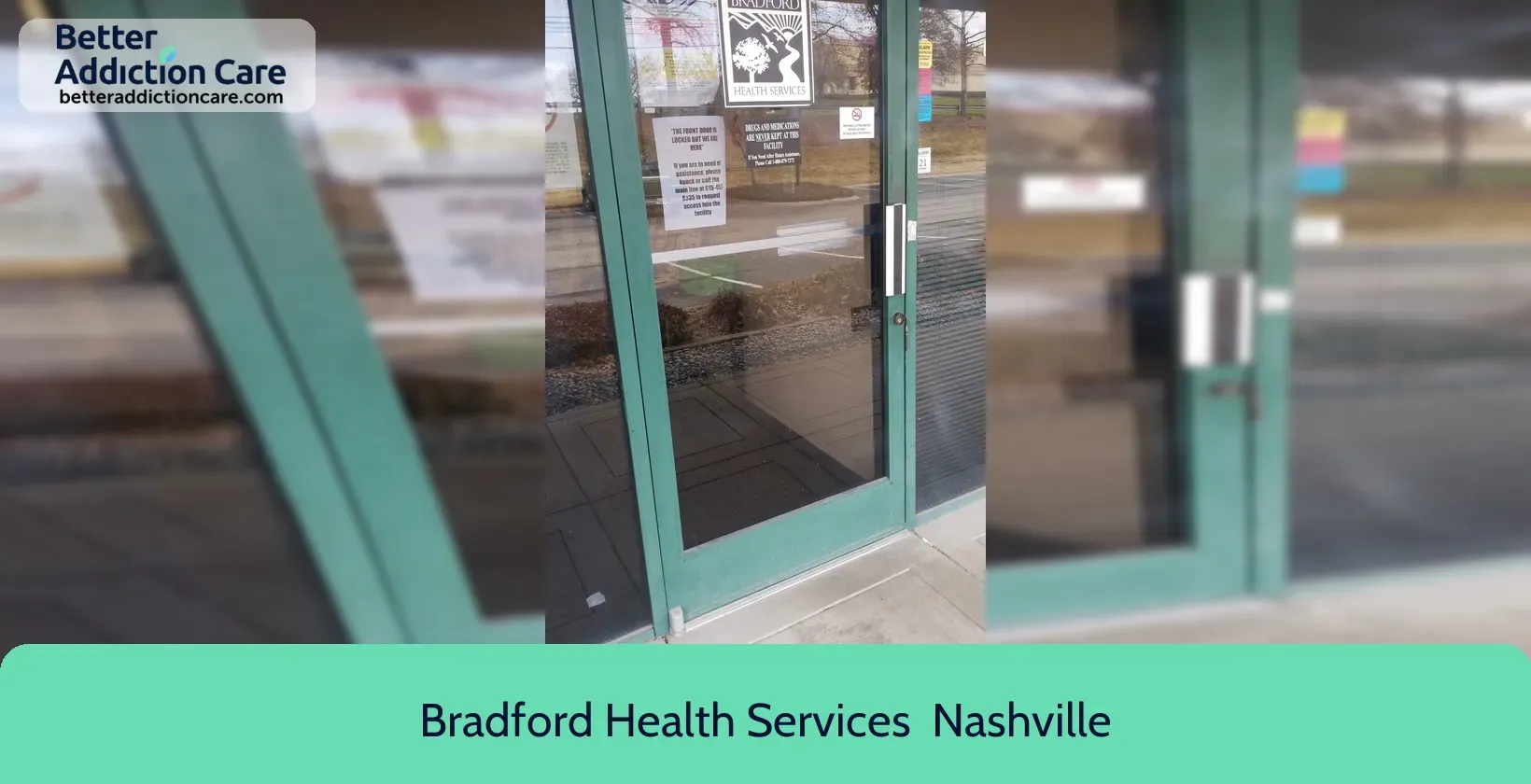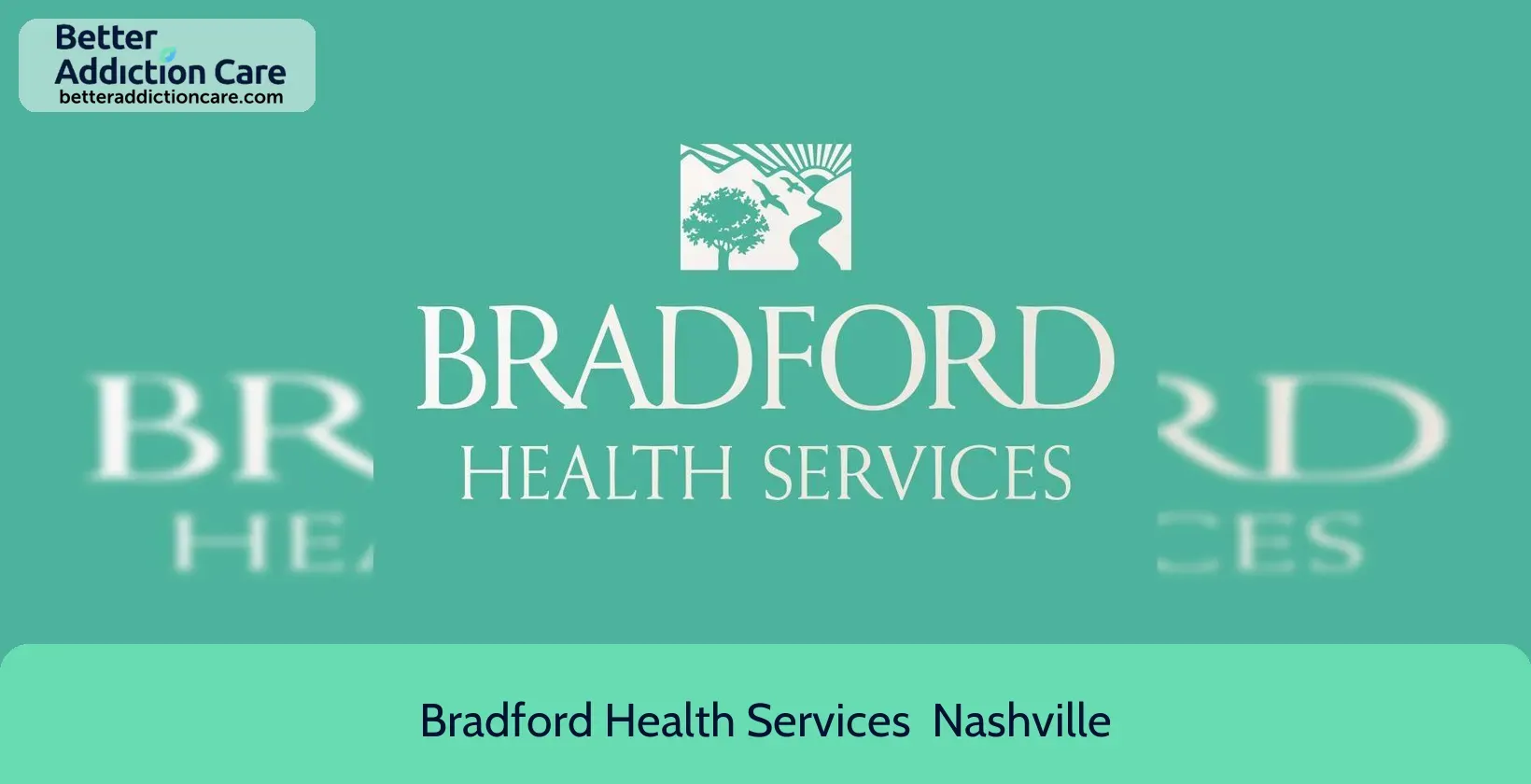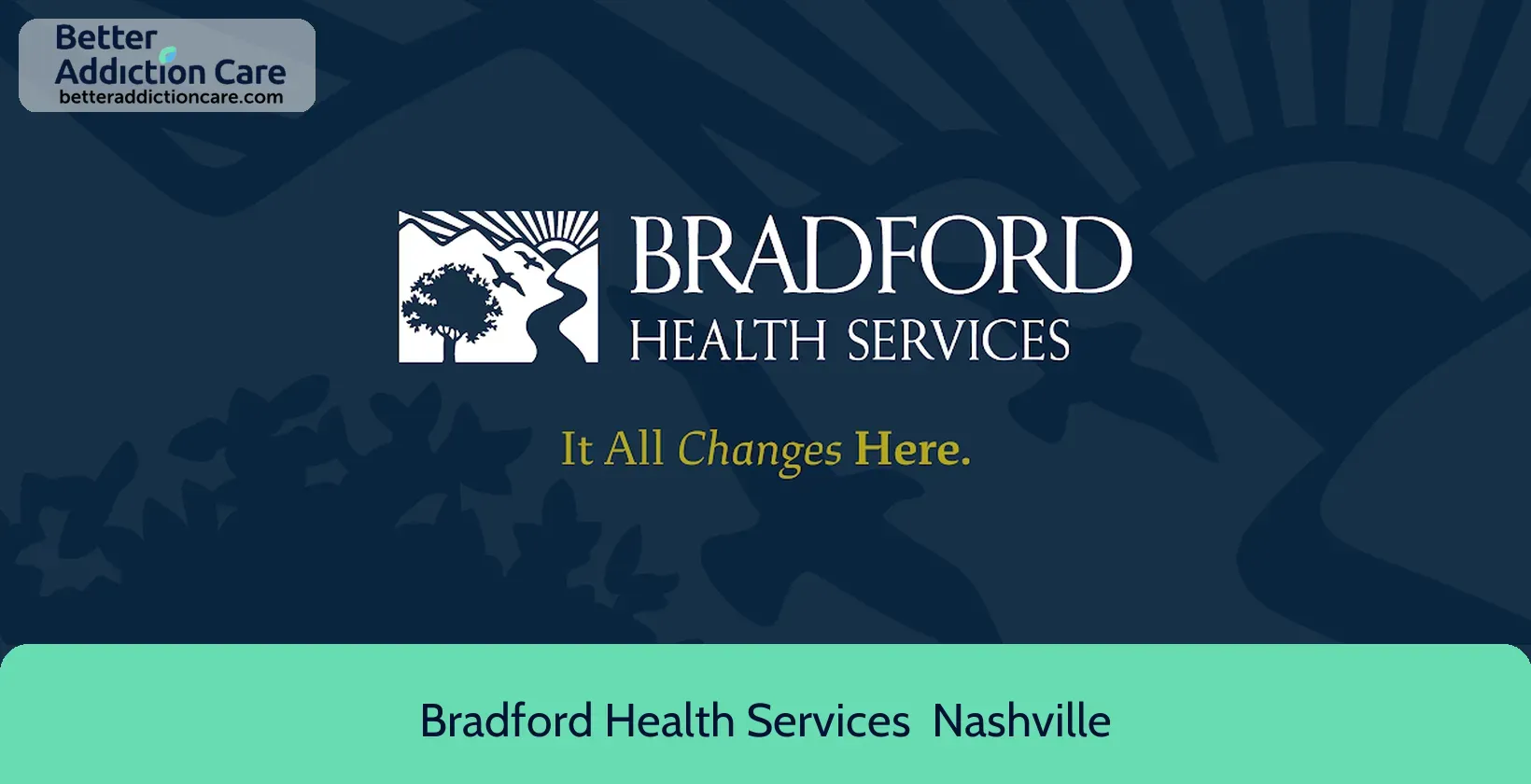Overview
Bradford Health Services - Nashville Outreach is an accredited substance abuse treatment center that provides outpatient treatment for men and women from 16 and 65+ years of age. As part of their special programs, Bradford Health Services - Nashville Outreach treats clients who have experienced trauma. To help patients achieve sobriety, Bradford Health Services - Nashville Outreach provides intake assessments. Afterward, patients receive cognitive behavioral therapy, telemedicine/telehealth therapy, and substance use disorder counseling during treatment. Bradford Health Services - Nashville Outreach is located in Nashville, Tennessee, providing treatment for people in Davidson County, accepting cash or self-payment, medicaid, and private health insurance.
Bradford Health Services - Nashville Outreach at a Glance
Payment Options
- Cash or self-payment
- Medicaid
- Private health insurance
Assessments
- Screening for tobacco use
- Comprehensive substance use assessment
- Outreach to persons in the community
- Screening for substance use
- Complete medical history/physical exam
Age Groups
- Adolescents
- Children/adolescents
- Seniors
Ancillary Services
- Case management service
- Suicide prevention services
Highlights About Bradford Health Services - Nashville Outreach
7.45/10
With an overall rating of 7.45/10, this facility has following balanced range of services. Alcohol Rehabilitation: 8.00/10, Drug Rehab and Detox: 7.85/10, Insurance and Payments: 6.00/10, Treatment Options: 7.94/10.-
Alcohol Rehabilitation 8.00
-
Treatment Options 7.94
-
Drug Rehab and Detox 7.85
-
Insurance and Payments 6.00
Accreditations
State mental health department:
State mental health department accreditation refers to the process of evaluating and certifying the quality and standards of a state's mental health department, ensuring that it provides high-quality services and meets specific criteria for mental health care. The accreditation process is performed by a third-party organization and helps to improve the overall care and treatment of individuals with mental health conditions.
The Joint Commission:

The Joint Commission, previously known as JCAHO, is a nonprofit organization that accredits rehabilitation organizations and programs. Established in 1951, its mission is to enhance the quality of patient care and showcase excellence in healthcare delivery.
NAATP:

The NAATP accreditation is a recognized certification for addiction and behavioral health facilities. This accreditation serves as a validation of a center's commitment to maintaining high standards in the field. It signifies that the facility has met specific criteria and requirements set by NAATP, ensuring that individuals seeking addiction and behavioral health services can expect a level of quality and professionalism in their care. NAATP accreditation is a notable benchmark for facilities striving to provide effective and ethical treatment within this critical healthcare sector.
Treatment At Bradford Health Services - Nashville Outreach
Treatment Conditions
- Alcoholism
- Substance use treatment
Care Levels
- Outpatient
- Outpatient methadone/buprenorphine or naltrexone treatment
- Outpatient day treatment or partial hospitalization
- Intensive outpatient treatment
- Regular outpatient treatment
Treatment Modalities
- Cognitive behavioral therapy
- Telemedicine/telehealth therapy
- Substance use disorder counseling
- Trauma-related counseling
- Smoking/vaping/tobacco cessation counseling
Ancillary Services
Additional Services
- Pharmacotherapies administered during treatment
- Mentoring/peer support
- Breathalyzer or blood alcohol testing
Special Programs
- Clients who have experienced trauma
Get Help Now
Common Questions About Bradford Health Services - Nashville Outreach
Contact Information
Other Facilities in Nashville

6.71

6.59

7.49

7.35

6.84

6.53

6.74

6.62
DISCLAIMER: The facility name, logo and brand are the property and registered trademarks of Centerstone 230 Venture Circle, and are being used for identification and informational purposes only. Use of these names, logos and brands shall not imply endorsement. BetterAddictionCare.com is not affiliated with or sponsored by Centerstone 230 Venture Circle.



